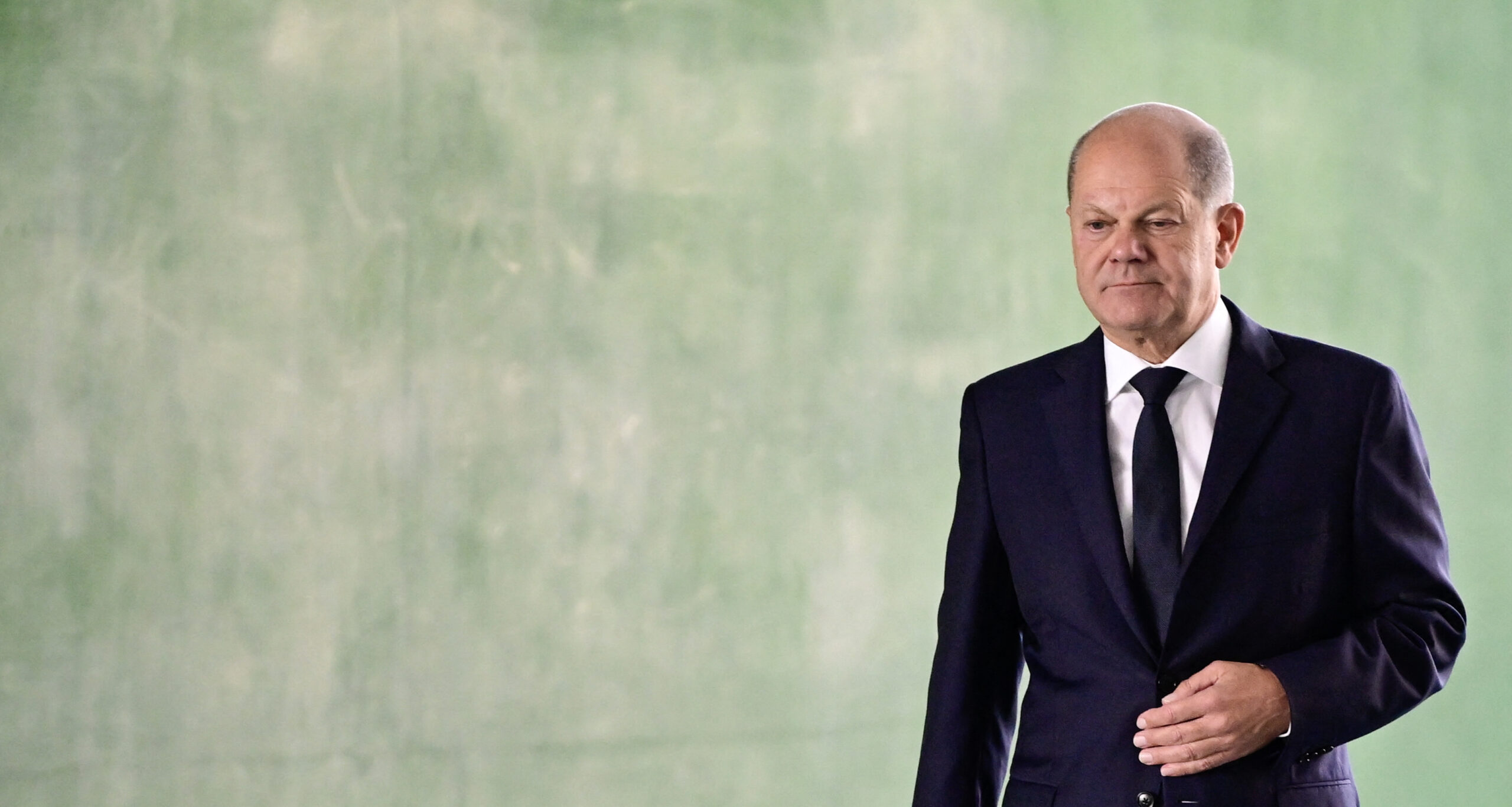German Chancellor Olaf Scholz plans to remain in office beyond the next election, and apparently he and his team already have a slogan: “New German Speed”. This is in reference to the velocity with which Germany has decoupled from Russian gas imports. The German voters, it seems, are also increasingly in a hurry — to get Scholz and his cabinet out. According to the Times, a majority wants a snap election, with just 37% supporting the current three-party coalition.
While Germany has had unpopular governments before, this time is different: not everybody supported Angela Merkel’s political decisions (especially during the 2015 migration crisis), but at least under her chancellorship Berlin was the undisputed hegemon within the EU. This is no longer the case, and Germany is once again being described as the “sick man of Europe”. The economy is no longer performing as it used to, with industrial production falling by 12.2% since 2018.
The decline in performance is also being noted abroad. According to polls, in 2022 only 8% of US companies viewed Germany as a problematic place for business. Now that number has increased to 38%. Just like potential American investors, the German public has developed a sense that nothing gets done anymore, with the most prestigious projects of the Red-Green-Liberal coalition having all been abject failures.
The list is extensive. The government abandoned nuclear power, but is now asking taxpayers to foot the resulting higher bills for industry. It changed the way in which welfare payments are allocated, and now almost 50% of recipients are non-German citizens who have never paid anything into the financial aid system. It wanted to force the people into renewable heating systems, but almost imploded over what became known as the “heating hammer”.
In the regional elections last Sunday the voters took the opportunity to express their dissatisfaction. Hesse and Bavaria are two of the richest German states, so these results are absolute bellwethers for what is about to come. In both, the AfD made notable gains, becoming the second largest party in Hesse and the third largest in Bavaria — a clear rebuke of the establishment parties.
Migration in particular is becoming a key issue again. Local communities are running out of resources and housing for a seemingly unending influx of migrants and refugees. For many it sounds like an insult when interior minister Nancy Faeser claims that Germany has the most advanced migration system in the world.
It is hard to understand the continued head-scratching in the media as to why it was not possible to contain the AfD to the areas of the former Eastern Germany. Besides migration, the head of the German Association of Industry has a simple answer: “in more and more places, industry turns off the lights” — without any intention of coming back.
Scholz and his coalition partners will most likely not heed the public calls for early elections, and like three drowning men they will try to keep the government afloat. The reckoning, however, will come in 2025 at the latest — and if current trends are any indication, Germany could experience a shift to the Right not seen in decades.











Join the discussion
Join like minded readers that support our journalism by becoming a paid subscriber
To join the discussion in the comments, become a paid subscriber.
Join like minded readers that support our journalism, read unlimited articles and enjoy other subscriber-only benefits.
Subscribe